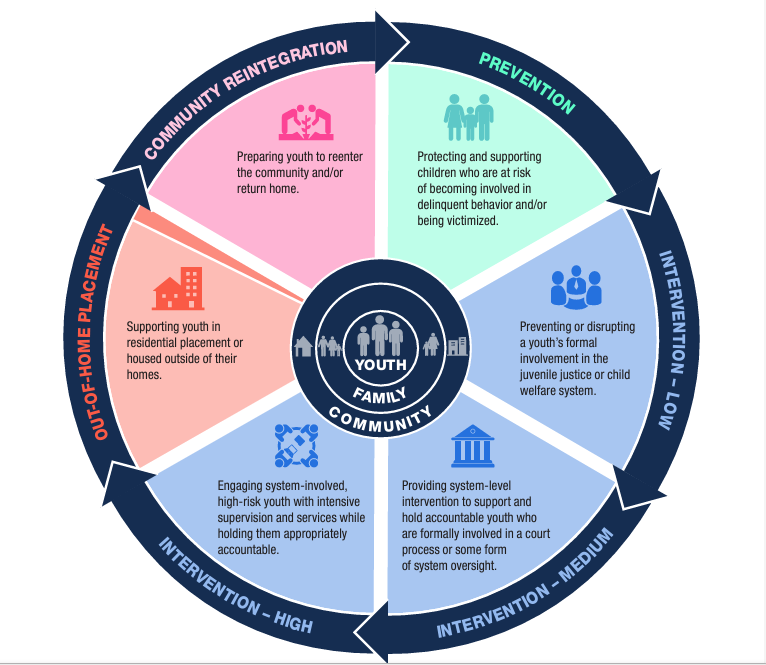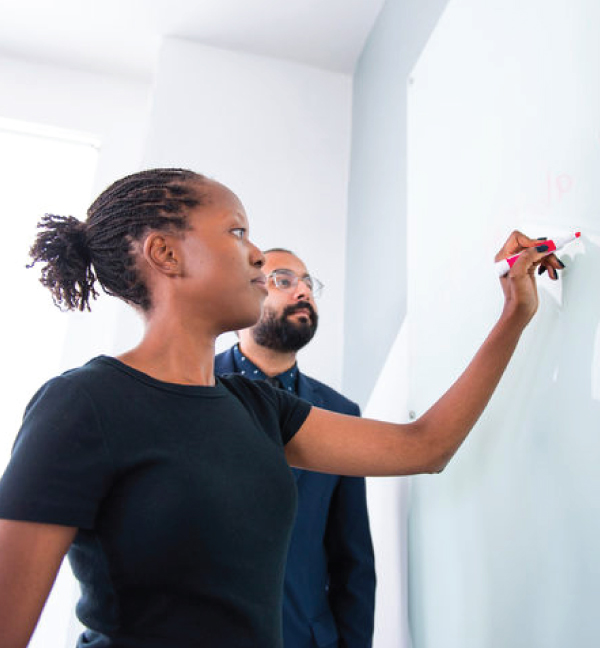Translating Evidence of What Works in Juvenile Justice Into Wider Practice
DSG is working with the federal Office of Juvenile Justice and Delinquency Prevention to develop and disseminate translational tools and resources to improve the juvenile justice system and prevent juvenile delinquency.
These tools and resources will be based on current knowledge about what works, packaged in accessible, comprehensible, actionable forms for use by youth-serving practitioners and laypersons to effect and sustain positive change.



PROJECT OVERVIEW
For the Office of Juvenile Justice and Delinquency Prevention (OJJDP), DSG will implement the Juvenile Justice Evidence Translation Project, a new OJJDP initiative designed to support the development and dissemination of translational research tools and resources, based on current credible knowledge about what works on key topics spanning the full juvenile justice continuum. OJJDP has defined “credible knowledge” to include not only evidence from rigorous research studies but also information from lessons learned, traditional Indigenous knowledge, legislation, jurisprudence, best or emerging practice, consensus community knowledge/experience, and other nontraditional sources.
The curation of knowledge for this project will build on and expand OJJDP’s Model Programs Guide and the National Institute of Justice’s CrimeSolutions, capturing rigorous empirical research and other credible knowledge. DSG will implement this initiative with the Latin American Youth Center and Healing Cities Baltimore.
We will follow six steps:
-
- Identify and prioritize five topical juvenile justice focus areas.
- Curate current research and knowledge.
- Scope and delineate the specific types of knowledge.
- Develop tools, materials, and resources.
- Conduct a usability review.
- Develop a strategy for organizing, promoting, and disseminating new resources.
The most important part of this project is “translation”—ensuring that the curated information is accessible and usable for people in the field. The DSG team is currently working with OJJDP to identify the five focus areas, as required by the office’s request for proposals. We will engage youth and family members, practitioners, and advocates who have relevant experience and important insight for each of the approved topic areas. After topics are identified and the knowledge is curated, scoped, and delineated, DSG will package the new tools and resources in accessible, comprehensible, actionable forms for use by everyday practitioners and lay persons to effect and sustain positive change. All work will be grounded in OJJDP’s continuum of care.
CONTACT US ABOUT THIS PROJECT
For more information about evidence translation, contact DSG’s director of state and local program initiatives, Elizabeth Spinney, at espinney@dsgonline.com or 301.951.0056.
